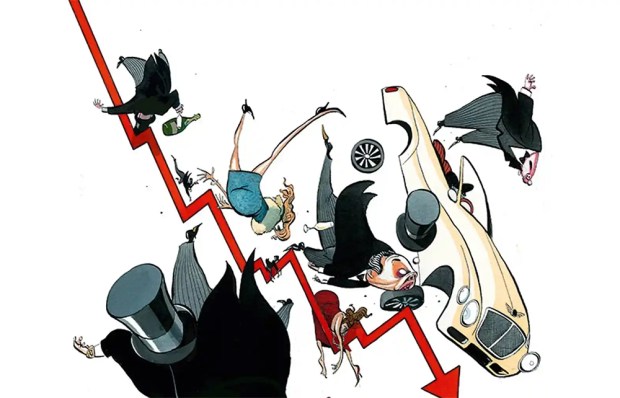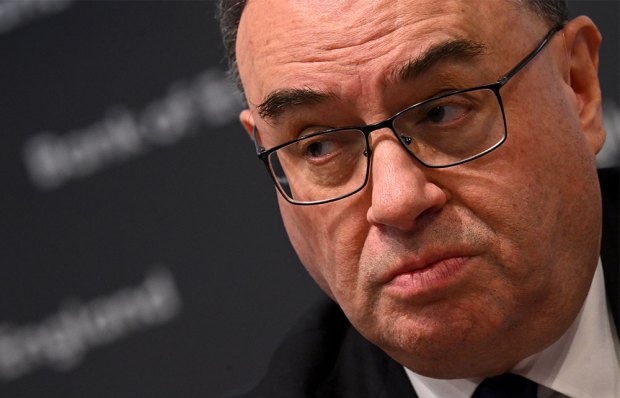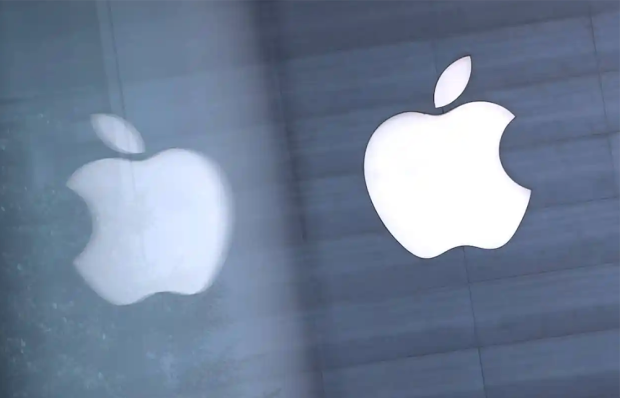Does the economist David Blanchflower — who I described as the Bank of England’s ‘resident wacko’ during his 2006-09 tenure on the Monetary Policy Committee and who later served as an adviser to Jeremy Corbyn — have a former pupil on the editorial team of the Todayprogramme? I can’t think why else he should have been afforded a soft six-minute interview with Mishal Husain (addressing him by his nickname ‘Danny’) in Monday’s prime slot between Thought for the Day and the eight o’clock news.
British-born, US-based Blanchflower is best remembered for declaring in 2009 that if the then shadow chancellor Osborne’s proposed spending cuts were ever enacted, ‘five million unemployed or more is not inconceivable’. Off-piste predictions were his stock in trade in those days; this week he popped up to plug a theory that — while he sees inflation as a temporary distraction — the US economy could be heading for recession, into which the UK will inevitably follow. He draws this conclusion from an observed pattern in which all recessions since the 1980s have been preceded by sharp falls in the US Conference Board and University of Michigan ‘consumer expectations’ indices: ‘Downward movements… in the last six months,’ he wrote recently, ‘suggest the economy in the US is entering recession now even though employment and wage growth figures suggest otherwise.’
Indeed they do: the Conference Board thinktank itself sees US GDP growth (though slowed by the Delta Covid variant) hitting 5.7 per cent for this year, 3.8 per cent in next year and 3.0 in 2023. So should we dismiss Blanchflower’s squib? I wonder.
Another economist we haven’t heard from lately is Andrew Oswald of Warwick University, once best known for pointing out that all modern recessions had been foretold by spikes in the oil price. Though that relationship seemed to become more tenuous as the world became more efficient in energy use, it still held good in the post-financial-crisis ‘great recession’ that was preceded by a $147-per-barrel speculative peak in July 2008. Oil and natural gas prices have multiplied in the past year, as has the price of coal imports to China. If the Oswald theory holds good again, so will Blanchflower’s: remember both are talking about predictive indicators of recession rather than multifaceted proximate causes.
To put this argument in the simplest possible terms, if consumers are frightened, input costs have gone berserk, supply chains are in chaos, interest rates and taxes are set to rise and governments are wildly overspent, how confident are you that the developed economies can blast a smooth path back to prosperity? And here’s another indicator as to why we’d be wise to start bracing ourselves: Professor Oswald’s latest published research tracks a correlation between economic downturns and ‘physical pain’.
Cancelled Cass
The City University Business School never had much profile until it renamed itself Cass Business School in 2002 on the strength of a £5 million donation from Sir John Cass’s Foundation. But the City merchant, MP and philanthropist Cass (1661-1718) was also an investor in the Royal African Company and his connection to slavery means his name has had to be erased from the charitable foundation (now the Portal Trust) which grew from his bequests, from the secondary school now called Stepney All Saints — and from the business school that has instead adopted ‘Bayes’, after the 18th-century philosopher Thomas Bayes, celebrated for his pioneering work in probability.
The trouble is that Bayes was also a bachelor clergyman, so his ghost may be busy calculating the probability that one day soon he will be accused of historic transgression or cultural offence. Institutions — like conglomerates and car designers — are best advised to play safe with made-up names that salute no one and signify nothing. Then all they have to do is check they haven’t accidentally chosen a Serbo-Croat obscenity.
Impact partners
Being Prince Harry’s bank manager must have required patience and tact in the days when he was maxing out his credit cards on stag trips to Las Vegas. Now Meghan has monetised her husband as a funless avatar of fashionable concerns, the Sussexes have climbed the financial ladder to become shareholders and ‘impact partners’ in Ethic, a New York wealth management boutique which claims to take ESG (environmental, social and governance) investing to the next level by creating ‘personalised sustainability solutions’ for its clients.
If you’re wondering what that means, take a look at a video on Ethic’s website featuring its British co-founder Jay Lipman, one of three former Deutsche Bank staffers who started the business in 2015. Lipman turns out to be the spitting image of Richard Goulding, the actor who played Harry in the first two series of The Windsors. But it’s not a spoof: it’s actually the way the whole investment world is heading as wealth moves down a generation from hedonistic baby boomers to heart-on-sleeve millennials. And our lost prince, though he may not know it, is right out there surfing the wave.
The designer’s art
Never judge a book by its cover — except perhaps my new one, The Good, the Bad and the Greedy: Why We’ve Lost Faith in Capitalism, out next week. The publisher Biteback has come up with an illustration of distant tower blocks under a stormy sky, seen through rain-soaked glass. To me it speaks eloquently of regret — for the many lapses of morality and judgment, in the City of London and beyond, that have clouded public understanding of the benefits of capitalism as our greatest engine of progress. To others, it might suggest financial turmoil, extreme weather or the desolation of working from home when you’d really rather be back in the office. I’ll be fascinated to hear what the designer’s art says to you.
Got something to add? Join the discussion and comment below.
Get 10 issues for just $10
Subscribe to The Spectator Australia today for the next 10 magazine issues, plus full online access, for just $10.
You might disagree with half of it, but you’ll enjoy reading all of it. Try your first month for free, then just $2 a week for the remainder of your first year.















Comments
Don't miss out
Join the conversation with other Spectator Australia readers. Subscribe to leave a comment.
SUBSCRIBEAlready a subscriber? Log in